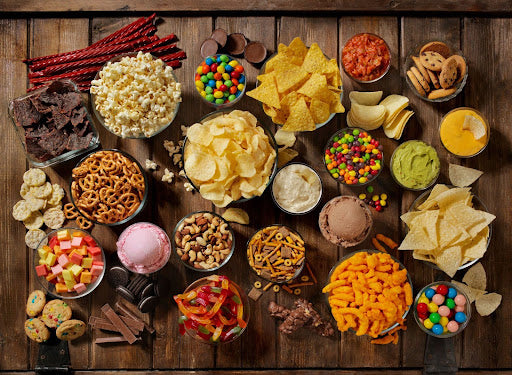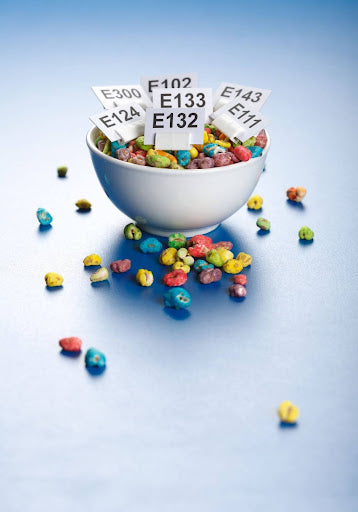
The Hidden Dangers of Ultra-Processed Foods and Your Health
The Hidden Dangers of Ultra-Processed Foods and Your Health
Do you ever feel like your grocery cart fills itself on autopilot, drawn to the bright packaging and convenient options? We all lead busy lives, and sometimes grabbing something quick and easy to eat feels like the only option.
But what if those convenient choices were secretly harming our health?
Lately, a term that's been gaining traction in nutrition circles is "ultra-processed foods."
This category has not only infiltrated our kitchens and dining tables but is also making headlines, as recent research draws a direct line connecting it with major health risks.

Understanding the Allure and Impact of Ultra-Processed Foods
Ultra-processed foods are a category of foods that have undergone extensive processing and modification from their original form, incorporating numerous additives and ingredients that are not typically used in home cooking.
These foods are characterized by their high content of industrial additives, such as preservatives, artificial colors, flavors, sweeteners, and emulsifiers. The primary aim of this level of processing is to enhance shelf life, improve texture, and maximize palatability, often at the expense of nutritional value.
Ultra-processed foods include a wide array of products, such as:
Soft drinks, sweetened beverages, and energy drinks
Packaged snacks, cookies, cakes, and pastries
Instant noodles and soups
Frozen meals and ready-to-eat dishes
Processed meats, such as sausages, hot dogs, and prepared frozen meat products
Ice cream and confectionery
Cereals and cereal bars that are highly sweetened
Fast food and many reconstituted meat products, including chicken nuggets
The manufacturing of these foods often involves using ingredients rarely found in domestic kitchens, such as soy protein isolate, high-fructose corn syrup, hydrogenated oils, and various artificial additives designed to mimic the taste and textures of natural foods.

The concern with ultra-processed foods is their lack of nutritional value and their contribution to a range of health risks.
Studies have linked high consumption of these foods to obesity, heart disease, type 2 diabetes, and certain cancers. This is attributed to their high content of unhealthy fats, sugars, salt, and low dietary fiber, coupled with additives and chemicals that may adversely affect health over time.
The Trifecta of Dietary Downfall: Emotions, Sugar, and Ultra-Processed Foods
Our cravings for these ultra-processed delights are fueled by a complex interplay of emotional responses, sugar imbalances, and the foods' engineered appeal.
Emotional eating, coupled with the physiological impact of sugar on our bodies, creates a fertile ground for ultra-processed foods to dominate our dietary choices.

These foods are meticulously designed to ensure we fall deeper into the craving cycle with every bite.
There are ways to stop your ultra-processed foods cravings, but they require some discipline and focused attention from you.
Read labels, learn how to identify harmful ingredients to your health, and keep you craving more. Sugars are often disguised with a variety of other names.
Start slow and shift your taste buds back to eating healthy, unprocessed foods in a whole state. Don’t try to do this overnight, but day by day.
If you usually snack on a highly processed cracker with salami and string cheese, swap that for a piece of wholewheat toast and avocado or hummus, or a sliced apple with peanut butter.
Make more of your meals at home yourself so that you are in control of what ingredients are added. This way, you can avoid all that extra sugar and salt without a problem.
Become very mindful when you go grocery shopping. See all those potato chips and candy at the checkout? Recognize that those products have been strategically placed there for you to add at the last minute.
Learn to spend more time in the fresh produce aisle, picking out fruits and vegetables that will benefit your health in the short and long term.
The rise of ultra-processed foods and their connection to major health risks is a wake-up call for all of us. It's a reminder of the importance of conscious eating and making choices that support our health and well-being.
By understanding the forces at play and taking deliberate steps towards a diet rooted in whole foods, we can navigate away from the pitfalls of ultra-processed foods and towards a future where our cravings lead us to genuine nourishment and vitality.
